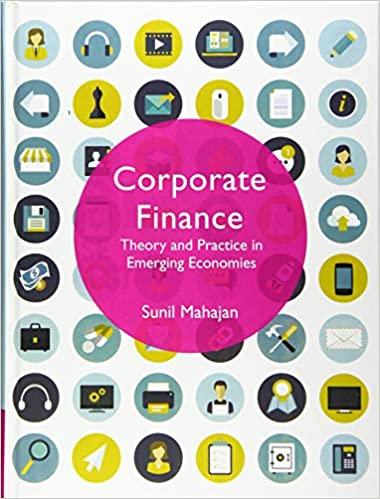Having completed your MBA at a relatively young age of 20 years, you land a dream job
Question:
Having completed your MBA at a relatively young age of 20 years, you land a dream job with an MNC operating in fast-moving consumer goods (FMCG) industry and are looking forward to a fulfilling career. You have been a model student, with conservative values, a legacy of your grandfather who was a freedom fighter and who inculcated a sense of discipline in your life. You have a few days left before taking up your assignment. The celebrations are over as are the congratulatory messages from friends, relatives and well-wishers, known and unknown. You start thinking ahead about your career, your personal life and the problems you may encounter. While the compensation is highly attractive, your spending habits are no longer conservative; you do like to live your life in some style, an outcome of bad habits picked up after the demise of your grandfather a few years back. Your thoughts turn to what the great man Einstein opined about compound interest being the greatest discovery of mankind. You are also suddenly reminded of your professor who had advised your class to start investing early and benefit from the magic of compounding of money over long period of time. You think hard about financial planning for the future and remember that your professor had, in fact, advised you to start saving from your first year. Any time you lose by postponing such savings will have a disproportionately large impact on your prospective wealth. Assume a rate of return of 10 per cent per annum.
Question
1. Your objective is to have ₹100 million on retirement at 70 years. (You are currently 20 years old. The first cash flow accrues at the end of the year.) How much do you need to save annually?
2. What should your savings be if the return changes to 8 per cent? 12 per cent?
3. You become lazy and greedy. You have postponed your savings to the time you turn 40. How much do you need to save annually to have ₹100 million on retirement?
4. Let us assume that you do not save in the last 25 years and save regularly in the first 25 years. But the savings in the first 25 years keep earning interest at 10 per cent for the later 25 years. How much do you need to save for those initial 25 years?
5. You also realize that inflation is a fact of life and is likely to reduce the value of the ₹100 million you will have on retirement. If you are expecting inflation to average 4 per cent over this period, what will be the value of your retirement kitty in real terms? If you want the purchasing power to remain at ₹100 million, what nominal amount should you target to have at 70 years?
6. What are your learnings from the preceding exercise?
Step by Step Answer:

Corporate Finance Theory And Practice In Emerging Economies
ISBN: 9781108486965
1st Edition
Authors: Sunil Mahajan





